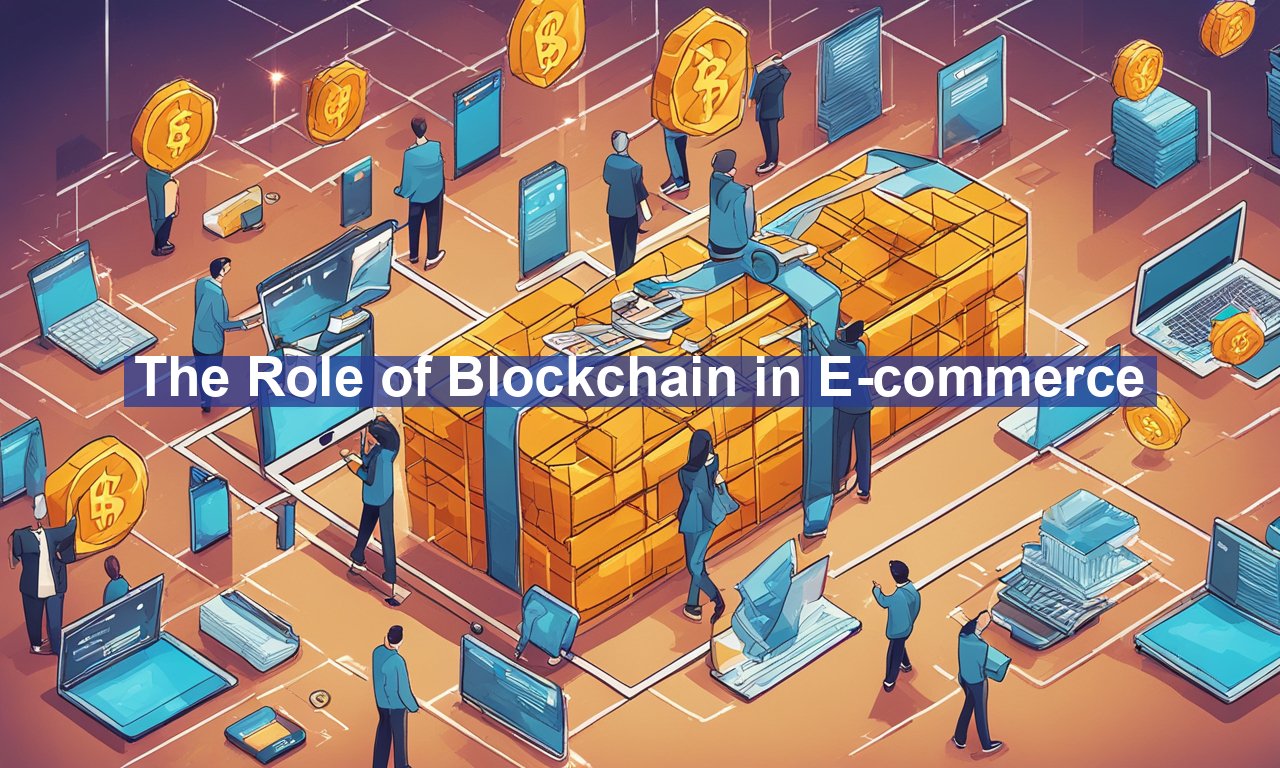The role of blockchain in e-commerce Imagine shopping online with absolute confidence that your transactions are secure and your data is protected. No more worrying about whether your payment will go through safely or if your identity could be stolen. Thanks to blockchain technology, this ideal shopping experience is becoming a reality. This transformative technology is revolutionizing e-commerce by enhancing security, transparency, and efficiency, dramatically reshaping how we buy and sell goods online. Intrigued? Let’s dive in to explore how the role of blockchain in E-commerce and why it matters.
The Security Revolution
One of the most significant advantages blockchain brings to e-commerce is its ability to enhance security. Traditional online transactions rely heavily on centralized databases, which can be vulnerable to hacking attacks. However, blockchain operates on a decentralized ledger system, making it much harder for cybercriminals to infiltrate.
- Decentralization: Unlike conventional databases that rely on a central point of control, blockchain technology is decentralized, distributing data across multiple nodes. This ensures no single point of failure, making hacking attempts significantly more challenging.
- Immutable Records: Transactions recorded on a blockchain are immutable, meaning they cannot be altered or deleted once confirmed. This feature ensures a permanent record that enhances trust and transparency between buyers and sellers.
For a deeper understanding of blockchain’s impact on security, take a look at this comprehensive guide by IBM.
Enhancing Payment Processes
Payment processing in e-commerce can be bogged down by intermediaries, transaction fees, and delays. Blockchain can streamline this process by providing a faster, cheaper, and more reliable method of transacting.
Cryptocurrencies and Smart Contracts
Cryptocurrencies: Cryptocurrencies like Bitcoin and Ethereum operate on blockchain technology and can facilitate instant and borderless transactions. This capability eliminates the need for third-party financial institutions, reducing transaction fees and processing times.
Smart Contracts: These self-executing contracts with the terms of the agreement directly written into code can automatically trigger payments once conditions are met. They offer a trustworthy, efficient, and error-free way to handle transactions.
For more insights into how cryptocurrencies are transforming payment systems, check out CoinDesk’s detailed article on Bitcoin.
Supply Chain Transparency
One of the less talked about but incredibly impactful benefits of blockchain in e-commerce is supply chain transparency. From sourcing raw materials to delivering the final product, blockchain can record every step of the process, providing a transparent and trustworthy supply chain.
- Traceability: Each transaction or movement of goods in the supply chain is recorded in a blockchain, providing an unalterable history. This ensures that customers can verify product origins and the ethical practices behind them.
- Fraud Prevention: The transparent nature of blockchain helps to prevent fraud by ensuring that all transactions are recorded and verifiable, making it difficult for counterfeit products to enter the supply chain.
- Efficiency: By digitizing and automating supply chain operations, blockchain technology reduces the need for paperwork and manual audits, increasing overall efficiency.
To explore how blockchain is changing supply chain management, read this Harvard Business Review article.
Building Customer Trust
Trust is fundamental in e-commerce transactions. Blockchain can significantly enhance customer trust by providing transparent and verifiable product information, ensuring data integrity, and enabling brand accountability.
- Verified Reviews: Blockchain can authenticate customer reviews, ensuring that feedback is genuine and preventing fake reviews from skewing product ratings.
- Privacy Protection: Blockchain enables the encryption of customer data, ensuring that personal information is securely stored and only shared with authorized parties.
Data and Identity Protection
E-commerce platforms are major targets for cyber-attacks due to the wealth of personal data they collect. Blockchain’s robust encryption techniques can protect users’ identities and transactional data, mitigating the risk of data breaches.
- Decentralized identifiers (DIDs) on the blockchain provide a secure way for users to manage their identities without relying on centralized authorities.
- Encryption and hashing algorithms make it virtually impossible for hackers to access or alter data without proper authorization.
For those interested in the technical aspects of blockchain and identity protection, this IBM developer article provides excellent insights.
Challenges and Future Prospects
While blockchain offers a plethora of benefits, it’s essential also to consider the challenges and potential hurdles in its adoption within e-commerce.
- Scalability: Blockchain networks may struggle with scaling issues, handling numerous transactions per second, which could affect efficiency.
- Regulatory Uncertainty: As blockchain is relatively new, regulations surrounding its use in e-commerce are still evolving, creating uncertainty for businesses.
- Integration Complexity: Integrating blockchain with existing e-commerce platforms can be technically complex and requires significant investment.
However, as technology matures and more businesses recognize its potential, blockchain is poised to become integral to e-commerce, continuing to evolve and overcome these challenges.
Conclusion
The role of blockchain in E-commerce is both revolutionary and multi-faceted. From enhancing security and efficiency to ensuring supply chain transparency and building customer trust, blockchain is a game-changer that promises to redefine the future of online shopping. As businesses and consumers increasingly embrace this technology, the potential for improved e-commerce experiences is limitless. For now, keeping an eye on blockchain advancements and understanding its benefits will be crucial for anyone involved in the e-commerce ecosystem.
Ready to experience a safer, more transparent, and efficient e-commerce world? Dive into the possibilities of blockchain and transform your online shopping experience for the better.


